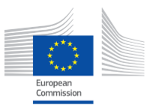
The twitter profile of Evangelos Areteos
On August 26, Greek journalist Evangelos Areteos was denied entry to Turkey. For more than two decades, he has been reporting to the Greek-speaking public about the transformations of Turkey
Walking papers citing reasons of "public order" and little other explanation: after 23 years of trying to understand and report about Turkey to the Greek-speaking public, travelling far and wide, Evangelos Areteos was denied access to the country at Istanbul-Sabiha Gokcen airport and sent back to Brussels on August 26. A Greek journalist and academic, Areteos has written two books on Turkey and countless essays and articles published in Greek and Cypriot media.
"Forty years in a cup of coffee"
In a farewell letter posted on his Twitter profile, which reveals bitterness rather than resentment, the journalist retraced his “40 years of memories hidden in a cup of coffee”, as the Turkish proverb goes. Areteos' Turkish experience actually covers just over two decades, but includes eight years spent permanently in the country, frequent travel, the birth of children, and friendship and professional ties. Unsurprisingly, the journalist referred to the expulsion as a "loss" to be mourned.
A trip to south-east Turkey, one to northern Syria in 2015, and frequent train journeys through "deep Turkey" are the reasons for the expulsion that the journalist gathers from the questions asked by the airport authorities. Contacts with "suspicious people" and some photos on Areteos' smartphone received through a Whatsapp group, relating to the activities of the Kurds in northern Syria, also played a role – it is not clear, however, how the Turkish authorities got access to them. “Like any journalist who does their job, I receive news and photos”, Areteos wrote.
The "great modernisation" of conservative Turkey
In his work, Areteos has never spared criticism of the Erdogan regime and the authoritarian turn following the Gezi Park protests and exasperated after the attempted coup in 2016. Yet, his writings do not dwell too much on the shenanigans of the arrogant nationalist rhetoric, often the only mantra of Turkish political relations with Greece and Cyprus.
In July, on his way to look at Turkey ahead of the 2023 elections – anything but a formality for the AKP – Areteos wrote that Anatolia gives "a face and words to a country that we struggle to understand in Greece, and that we still persist in seeing through Tayyip Erdogan's prism and the statements of politicians, seeing 'the tree' and missing 'the forest'”.
The forest, for the journalist, are the social transformations taking place in the country, the unstoppable "train of great modernisation" analysed in a book written jointly with Giorgos Angeletopoulos. The growing disaffection towards Erdogan, Areteos argues, is not only determined by the economic problems and galloping inflation, but also by the changes taking place in the conservative and Islamic segment of the population, in what used to be a stronghold of AKP.
As the state moves away from secularism, the process of secularisation continues unstoppable, dampening the attempt to leverage Islam to mobilise the electorate. In the "pious generation" that Erdogan has tried to cultivate, Areteos observes "secularised social and anthropological behaviours", in which religion is by no means the only cornerstone for the construction of individual identity, and religious norms are reinterpreted, for example in the case of premarital relationships.
Areteos' work is characterised by a genuine attempt to go beyond stereotypes, to become an agent of mutual understanding and dialogue – a dialogue jeopardised by the expulsion measure.
Precedents
Areteos' is not a unique case. In 2019 the same happened to three German correspondents . Two of them – from public TV ZDF and Berlin newspaper Tagesspiegel – were denied by the authorities the renewal of press accreditation without any explanation, and ordered to leave the country within 10 days.
Freelance journalist Sylvain Mercadier, who had previously covered the Kurdish issue, was detained at the airport and sent back to France in March 2021, while on his way to Diyarbakir.
In November of the same year, Syrian journalist Majed Shamaa, in exile in Turkey, was detained by the authorities and threatened with repatriation after posting a comic video deemed disrespectful to Turkish citizens on Orient News.
As for Areteos, embittered but not resigned after his expulsion, he wrote that he will continue to cover the country "with the same conviction even from a distance, hoping that at some point the Turkish authorities will back down on their decision".
| This publication was produced within the Media Freedom Rapid Response (MFRR), co-funded by the European Commission. The contents of this publication are the sole responsibility of Osservatorio Balcani Caucaso Transeuropa and its partners and can in no way be taken to reflect the views of the European Union. |
blog comments powered by









